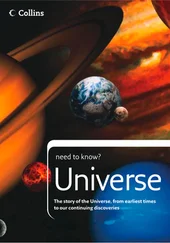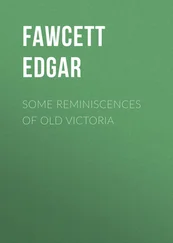Millicent Fawcett - Some Eminent Women of Our Times
Здесь есть возможность читать онлайн «Millicent Fawcett - Some Eminent Women of Our Times» — ознакомительный отрывок электронной книги совершенно бесплатно, а после прочтения отрывка купить полную версию. В некоторых случаях можно слушать аудио, скачать через торрент в формате fb2 и присутствует краткое содержание. Жанр: foreign_antique, foreign_prose, на английском языке. Описание произведения, (предисловие) а так же отзывы посетителей доступны на портале библиотеки ЛибКат.
- Название:Some Eminent Women of Our Times
- Автор:
- Жанр:
- Год:неизвестен
- ISBN:нет данных
- Рейтинг книги:3 / 5. Голосов: 1
-
Избранное:Добавить в избранное
- Отзывы:
-
Ваша оценка:
- 60
- 1
- 2
- 3
- 4
- 5
Some Eminent Women of Our Times: краткое содержание, описание и аннотация
Предлагаем к чтению аннотацию, описание, краткое содержание или предисловие (зависит от того, что написал сам автор книги «Some Eminent Women of Our Times»). Если вы не нашли необходимую информацию о книге — напишите в комментариях, мы постараемся отыскать её.
Some Eminent Women of Our Times — читать онлайн ознакомительный отрывок
Ниже представлен текст книги, разбитый по страницам. Система сохранения места последней прочитанной страницы, позволяет с удобством читать онлайн бесплатно книгу «Some Eminent Women of Our Times», без необходимости каждый раз заново искать на чём Вы остановились. Поставьте закладку, и сможете в любой момент перейти на страницу, на которой закончили чтение.
Интервал:
Закладка:
It was after her brother’s marriage, in 1788, that the majority of Caroline’s astronomical discoveries were made. She discovered her first comet in 1786, her eighth and last in 1797. She was recognised as a comrade by all the leading astronomers of Europe, and received many letters complimenting her on her discoveries. One from De la Lande addressed her as “Savante Miss,” while another from the Rev. Dr. Maskelyne saluted her as “My worthy sister in astronomy.” Royal and other distinguished visitors constantly visited the wonderful forty-foot telescope at Slough, and either William Herschel or his sister were required to be in attendance to explain its marvels. The Prince of Orange, on one occasion, called, and left an extraordinary message “to ask Mr. Herschel, or if he was not at home, Miss Herschel, if it was true that Mr. Herschel had discovered a new star, whose light was not as that of the common stars, but with swallow-tails, as stars in embroidery.” The only glimpse we get, through the peaceful labours of Caroline’s long life, of the strife and turmoil of the French Revolution, is the note she makes of the visit, to her brother’s observatory, of the Princesse de Lamballe. “About a fortnight after this,” the diarist observes, “her head was off.” The absence of all comment upon the wonderful political events of the time is noticeable, and so also is Caroline’s thinly-veiled contempt for any science less sublime than that to which she and her brother were devoted. Her youngest brother, Dietrich, was a student of the insect world. “He amuses himself with insects,” she wrote to her nephew; “it is well he does not see the word amuses , for whenever he catches a fly with a leg more than usual, he says it is as good as catching a comet.” Her brother’s marriage, though far from welcome at the time it took place, was a great blessing to her; for it gave her a most tender and affectionate sister, and ultimately a nephew, the inheritor of his father’s great gifts, and the being to whom, after William Herschel’s death in 1822, Caroline transferred all the devoted and passionate attachment of which her nature was capable.
The great mistake of her life was going back to Germany after Sir W. Herschel’s death in 1822. She was then seventy-two years of age, and the previous fifty years of her life, containing all her most precious memories and associations, had been spent in England. In this country, also, were all those who were dearest to her. Yet, no sooner was her brother dead, than she felt life in England to be an impossibility. She little thought that she had still twenty-six years to live; indeed she had long been under the impression that her end was near, but while her brother lived she kept this to herself, because she wished to be useful to him as long as she possibly could. She never really re-acclimatised herself to Germany. “Why did I leave happy England?” she often said. The one German institution she thoroughly enjoyed was the winter series of concerts and operas, which she constantly attended, and she mentions with pleasure, in her letters, that she was “always sure to be noticed by the Duke of Cambridge as his countrywoman, and that is what I want; I will be no Hanoverian.” She laments the death of William IV., chiefly because, by causing a separation of the crowns of England and Hanover, it seemed to break a link between herself and the country of her adoption.
She never revisited England, but she kept up a constant communication with it by letters to her sister-in-law, her nephew, and later to her niece, Sir John Herschel’s wife. At that time the post between London and Hanover was an affair of fifteen days, and letters were carried by a monthly messenger, of whose services she seldom failed to avail herself. She took the keenest interest in her nephew’s distinguished career. His letters to her are full of astronomy. In 1832 he made a voyage to the Cape to observe the stars in the Southern Hemisphere. When Miss Herschel first heard of the intended voyage she refused to believe it. But when she was really convinced of it, the old impulse was as strong upon her as upon a war-horse who hears the trumpet. “Ja! if I was thirty or forty years younger and could go too!” she exclaimed.
On 1st January 1840 the tube of the celebrated forty-foot telescope was closed with a sort of family celebration. A requiem, composed by Sir John Herschel for the occasion, was chanted, and he and Lady Herschel, with their seven children and some old servants, walked in procession round it, singing as they went. On hearing of this from Slough, Miss Herschel recalls that the famous telescope had also been inaugurated with music. “God save the King” had then been sung in it, the whole company from the dinner-table mounting into the tube, and taking any musical instruments they could get hold of, to form a band and orchestra.
The most laborious of all her undertakings she accomplished after her brother’s death. It was “The Reduction and Arrangement in the form of a catalogue, in Zones, of all the Star Clusters and Nebulæ, observed by Sir W. Herschel in his Sweeps.” It was for this that the gold medal of the Royal Astronomical Society was voted to her in 1828.
All through her life in Hanover she lived with the most careful economy, seldom or never consenting to draw upon Sir John Herschel for the annuity of £100 that had been left her by her brother. She said it was impossible for her to spend more than £50 a year without making herself ridiculous. The only luxuries she granted herself were her concert and opera tickets, and her English bed, which all sufferers from the inhuman German bedding must be thankful to hear she possessed. The self-forgetfulness and devotion to others which had characterised her in youth accompanied her to her grave. Every detail with regard to the disposition of her property and the arrangements for her funeral had been made by herself, with the view of giving as little trouble as possible to her nephew, and making the smallest encroachment upon his time. In her latest moments her only thought for herself was embodied in a request that a lock of her beloved brother’s hair might be laid with her in her coffin.
IV
SARAH MARTIN
THE DRESSMAKER AND PRISON VISITOR OF YARMOUTH
“Two men I honour and no third. First the toilworn craftsman that with earth-made Implement laboriously conquers the earth and makes her man’s… A second man I honour, and still more highly: Him who is seen toiling for the spiritually indispensable; not daily bread, but the bread of Life… Unspeakably touching is it however when I find both dignities united; and he that must toil outwardly for the lowest of man’s wants, is also toiling inwardly for the highest. Sublimer in this world know I nothing than the Peasant Saint, could such now anywhere be met with. Such a one will take thee back to Nazareth itself; thou wilt see the splendour of Heaven spring forth from the humblest depths of Earth, like a light shining in great darkness.” – Sartor Resartus , pp. 157, 158.
Every one of us has probably been tempted at one time or another to say or think when asked to join in some good work, “If only I had more time or more money, I would take it up.” It is good for us, therefore, to be reminded that neither leisure nor wealth are necessary to those whose hearts are fixed upon the earnest desire to leave this world a little better and a little happier than they found it.
This lesson was wonderfully taught by Sarah Martin, a poor dressmaker, who was born at Caister, near Great Yarmouth, in 1791. In her own locality she did as great a work in solving the problems of prison discipline, and how to improve the moral condition of prisoners, as Mrs. Fry was doing about the same time upon a larger scale in London. It is very extraordinary that this poor woman, who was almost entirely self-educated, and who was dependent on daily toil for daily bread, should have been able, through her own mother-wit and native goodness of heart, to see the evil and provide the same remedies for it as were in course of time provided throughout the land, as the result of study given to the subject, by statesmen, philosophers, and philanthropists.
Читать дальшеИнтервал:
Закладка:
Похожие книги на «Some Eminent Women of Our Times»
Представляем Вашему вниманию похожие книги на «Some Eminent Women of Our Times» списком для выбора. Мы отобрали схожую по названию и смыслу литературу в надежде предоставить читателям больше вариантов отыскать новые, интересные, ещё непрочитанные произведения.
Обсуждение, отзывы о книге «Some Eminent Women of Our Times» и просто собственные мнения читателей. Оставьте ваши комментарии, напишите, что Вы думаете о произведении, его смысле или главных героях. Укажите что конкретно понравилось, а что нет, и почему Вы так считаете.
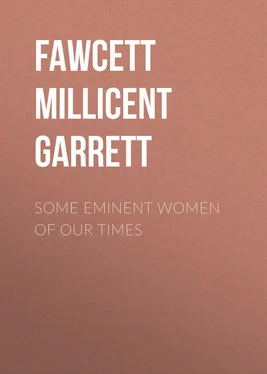

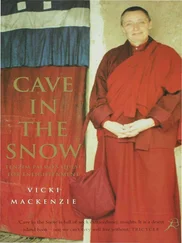
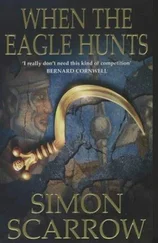
![Корнелл Вулрич - Murder at Mother’s Knee [= Something That Happened in Our House]](/books/398097/kornell-vulrich-murder-at-mother-s-knee-somethin-thumb.webp)
